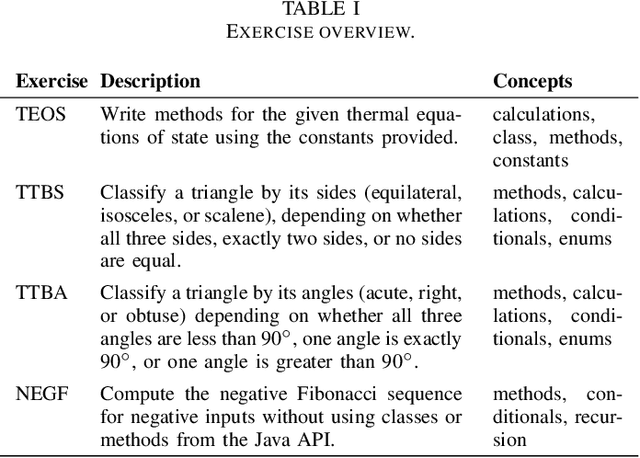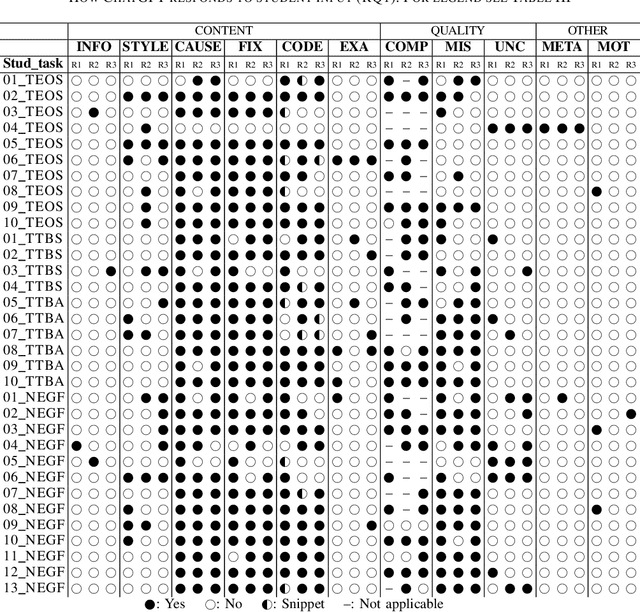Dominic Lohr
You're (Not) My Type -- Can LLMs Generate Feedback of Specific Types for Introductory Programming Tasks?
Dec 04, 2024Abstract:Background: Feedback as one of the most influential factors for learning has been subject to a great body of research. It plays a key role in the development of educational technology systems and is traditionally rooted in deterministic feedback defined by experts and their experience. However, with the rise of generative AI and especially Large Language Models (LLMs), we expect feedback as part of learning systems to transform, especially for the context of programming. In the past, it was challenging to automate feedback for learners of programming. LLMs may create new possibilities to provide richer, and more individual feedback than ever before. Objectives: This paper aims to generate specific types of feedback for introductory programming tasks using LLMs. We revisit existing feedback taxonomies to capture the specifics of the generated feedback, such as randomness, uncertainty, and degrees of variation. Methods: We iteratively designed prompts for the generation of specific feedback types (as part of existing feedback taxonomies) in response to authentic student programs. We then evaluated the generated output and determined to what extent it reflected certain feedback types. Results and Conclusion: The present work provides a better understanding of different feedback dimensions and characteristics. The results have implications for future feedback research with regard to, for example, feedback effects and learners' informational needs. It further provides a basis for the development of new tools and learning systems for novice programmers including feedback generated by AI.
Exploring the Potential of Large Language Models to Generate Formative Programming Feedback
Aug 31, 2023

Abstract:Ever since the emergence of large language models (LLMs) and related applications, such as ChatGPT, its performance and error analysis for programming tasks have been subject to research. In this work-in-progress paper, we explore the potential of such LLMs for computing educators and learners, as we analyze the feedback it generates to a given input containing program code. In particular, we aim at (1) exploring how an LLM like ChatGPT responds to students seeking help with their introductory programming tasks, and (2) identifying feedback types in its responses. To achieve these goals, we used students' programming sequences from a dataset gathered within a CS1 course as input for ChatGPT along with questions required to elicit feedback and correct solutions. The results show that ChatGPT performs reasonably well for some of the introductory programming tasks and student errors, which means that students can potentially benefit. However, educators should provide guidance on how to use the provided feedback, as it can contain misleading information for novices.
 Add to Chrome
Add to Chrome Add to Firefox
Add to Firefox Add to Edge
Add to Edge